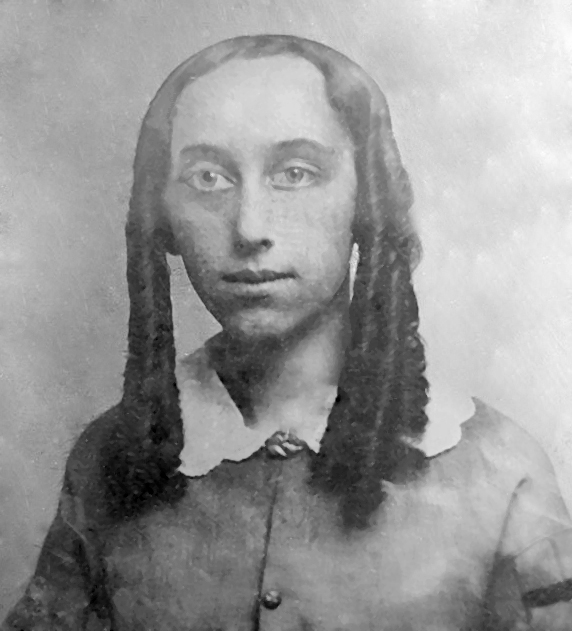In all probability I must teach, that is all a woman can do.
In 1858, long before any woman was admitted to practice law in the United States, 18-year-old Lavinia Goodell contemplated her future. She wrote to her sister, Maria:

I expect to graduate next summer . . . and I must have a life plan. I don’t believe in living to get married, if that comes along in the natural course of events—very well, but to make it virtually my end aim, to square all my plans to it, and study and learn for no other purpose, does not suit my ideas.
I think the study of law would be pleasant, but the practice attendant with many embarrassments. Indeed, I fear it would be utterly impractical. [O]ur folks would not hear of my going to college; I should dare not mention it. Mamma is very much afraid that I shall be identified with the “women’s rights movement.” Mary advises me to try writing for the press, but you know I have so much to learn about everything, to be conversant with literature, to perfect my style, to arrange my ideas and to know my latitude and longitude on the ocean of thought that it would be a long, long time before I could enter boldly upon it as a profession.
In all probability I must teach, that is all a woman can do, and now the profession is overcrowded with women, who need support and can do nothing else, except make shirts at a few cents per day.
As you will soon learn, Lavinia did become a teacher, but also a writer, an editor, a women’s rights activist (sorry, Mama!), and a lawyer. The interesting question is: Why was teenage Lavinia dreaming of being a lawyer 11 years before any woman in the United States had become one?
Yes, she was precocious. Just as important, her father, William Goodell, was a prominent abolitionist who had schooled her in equal rights. See Goodell Family page. In papers discovered after her death, Lavinia recalled her anti-slavery themed work bags, needle books, pin cushions, and crockery. She wrote:
Among my childish recollections is that of sitting up at the table and reading on my plate in blue letters “We hold these truths to be self-evident, that all men are created free and equal, that they are endowed by their Creator with certain inalienable rights, among them which are life liberty and the pursuit of happiness. That to secure these rights governments are instituted among men deriving their just powers from the consent of the governed.”
When I sat down to dinner every day I read my plate, till I had learned it all by heart—learned it so well I never forgot it. And thus literally with my child’s bowl of bread and milk I drank in also the question of equal rights, the foundation principle of civil government, which has since thrown light on many a perplexing social and political problem, which might otherwise have proved less clear.
Lavinia came of age and dreamed of studying law in the buildup to the Civil War when the struggle for equal rights included campaigns for both the abolition of slavery and for women’s rights. During the war, the women’s rights movement was put on hold. When it ended in 1865, the activists regrouped and the movement resurged. By 1867, Lavinia, a “spinster” in her late 20s, was living in New York City and constantly scanning newspapers as part of her editorial job for Harper’s Bazar. She moved to Janesville in 1871 and started studying law in 1873 at a time when a few women applied to law school or took the bar exam just to prove that they could do it. See Sisters in Law page. But Lavinia actually wanted to practice law” to support herself and to advance causes like women’s rights.
In 1875, a year into her practice, Lavinia published “Shall Women Study Law?” in the Woman’s Journal, Lucy Stone’s suffragist newspaper. Spoiler alert: her answer was “yes!” She urged readers:
Sooner or later women will be voters, and when the bridegroom of freedom calls, may he find wise virgins with their lamps of knowledge trimmed and burning! If every woman in the country could give even six months to a course of legal reading, the objection that women need to be educated for the ballot would be brushed aside like last year’s cobweb. Dress more simply, let the novels and magazines go, and read law, if you fancy that you have even a faint glimmering of taste for it. You will never regret the time thus spent.”
CB
Sources consulted: Maria Goodell Frost, Life of Lavinia Goodell (unpublished manuscript); Jill Norgren, Rebels at the Bar: The Fascinating, Forgotten Stories of America’s First Women Lawyers (New York University Press, 2013); Lavinia Goodell, “Shall Women Study Law?” Woman’s Journal, Vol. 6, No. 36, September 4, 1875.
Photo credit: Berea College, Special Collections and Archives .







